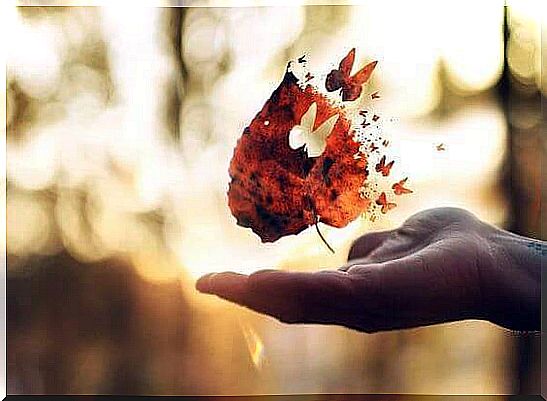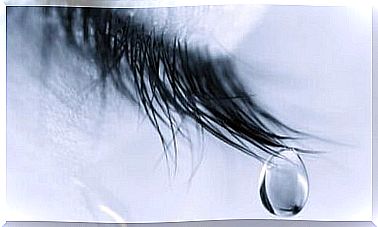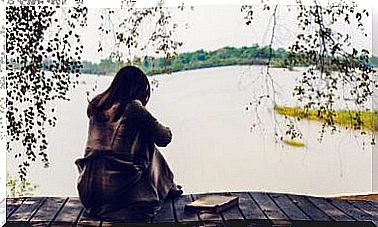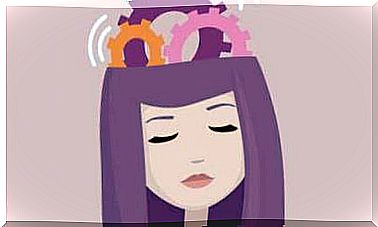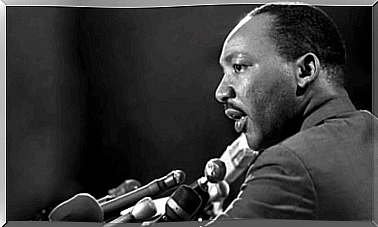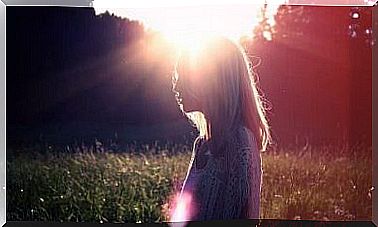Personal Disasters Are The Best Guides To Our Emotions
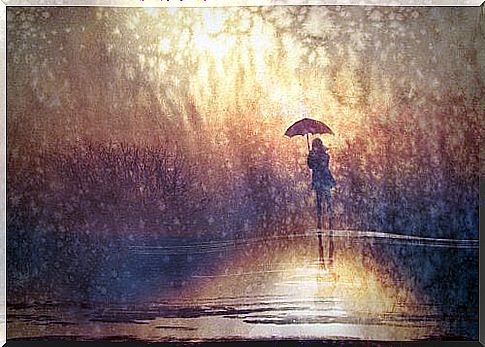
Sometimes I feel like I’m going to fall, that I’m going to collapse. And in those moments, I tell myself that I am stronger than that, that I have already overcome much more difficult things, I think of this friend who is in a much more delicate situation and who nevertheless remains optimistic. But, whatever the case, the reality is different; we are all driven by our emotions. So, sometimes I accept that I feel bad, and that it’s okay if my sadness isn’t rational. I cry, I cry a lot, to see if tears can heal wounds, as well as ice, or hugs. And sometimes it turns out to be effective.
But other times… there is nothing that can soothe the pain I feel inside me. I repeat then to those who love me that no, it is not their fault. And that no, they can do nothing for me, except to be there… because sometimes, their very presence is worth all the actions of the world. I feel frustrated, and it makes me angry. Because yes, psychologists are topographers who make maps that can allow those who read them to be happy … which does not necessarily imply that everyone can achieve it.
Have you ever found yourself in a situation like this?

A meta-emotion is an emotion that arises in reaction to another emotion, such as when you feel guilty for getting mad at your friend. Do you really have a reason to feel this way? If your answer is no, at the right time, there’s no point in continuing to read this article if you don’t feel like it. However, and this is normal, most people will answer yes. Otherwise, they wouldn’t feel bad. If this is your case and you want to know how to deal with it, read on for the rest of this article, where we will see how to identify and deal with these type of emotions.
What is certain is that it is normal for an emotion to arouse other emotions in us. The real problem lies in not knowing how to identify and channel these meta-emotions, especially if they start to interfere with our life and our usual way of acting. This is the case with many parents who feel guilty for being happy.
Indeed, families who have been affected by the crisis have been forced to survive more than to live, and therefore, leisure is quite dispensable for adults, especially if there are children. What does it cause? When the main lifters of this family nucleus have a space to disconnect (going to play with friends, have a coffee with work colleagues …) or a need (for a coat, to go at the hairdresser), they forget it because “there are other priorities”. And, often, they end up feeling guilty for having enjoyed and enjoyed themselves. The same happens when you have a sick loved one.

Just learning that this experience was not positive is positive. And that’s what I call “natural disasters” ; these are inevitable very negative and painful events that change you. They change you, paradoxically, for the better. It is certain that sometimes it seems that life puts us to the test and you ask yourself: “what have I done to deserve this?”
The worst part is that there is often no answer to this question. You did nothing to deserve to have a loved one sick, to be fired, or to be the victim of this traffic accident. Then you will never be the same again, and you don’t know how to move forward with this “new you”. The suffering remains, but now as something that is part of you. You’ve assimilated her and you know she won’t go away, but at the same time you are able to see the bright side and you feel good.
These are natural disasters because you couldn’t foresee them, and they destroyed everything you knew. From now on, even if they are a thing of the past, there remains in you a very important mark of the damage done. We all have our own natural disasters. And know that no one is immune to these natural disasters, but only you can decide what to do when they happen to you.
In 2011, of the 365 days that make up the year, 6 minutes was enough to breach the lives of many people around the world. In fact, the tsunami in Japan caused 15,893 dead, 172 injured and 8,405 missing. Two very different reactions were observed among the people who had this experience; on the one hand, those who are afraid and will be afraid of the sea for the rest of their lives, and on the other, those who assimilate this event and who make it part of their experience.
Stop, breathe and think… life is full of cycles to come through, pages to turn. No one has a perfect life, everything goes. Plus, we need tough times to really realize how important it is to take advantage of the crest of the wave when we’re at the top.
So how can you turn the page? Well, the answer to that question takes me to a book that I read some time ago that has nothing to do with a typical self-help manual by the way. This book is aimed at sick people who are aware of suffering from a terminal illness, and gives them advice that can allow them to say goodbye to their loved ones. It can be summed up in four sentences: I’m sorry, I forgive you, I love you and thank you.
You are probably wondering what to do with this information if you are not terminally ill with an illness. Well, you can address these four sentences to the person or situation that is keeping you from moving forward. In other words, it is about recognizing our mistakes and those of others, but also the good things that we and the others have done, to recognize the esteem that you have towards this person, to smile at this stage of your life. and to be grateful for having lived this experience.
Forgiveness cannot be avoided, and at the same time it allows us to let go of what blocks us, it offers us the possibility of seeing ourselves and others as much more complex and rich entities. From now on, this no longer affects us, and we can move forward. The aforementioned book is about a woman who forgave her father, who abused her, on his deathbed.
We are human, we make mistakes, and forgive life and yourself for those moments or decisions that you are not proud of and assimilate them as part of your past, without to feel uncomfortable about it is one of the greatest challenges that exists. These are the people who will make this natural disaster a strong point in their life and in their personality. And they will come back. They will come back to look at the sea and say “I am here”.
No one can choose a natural disaster, but we can choose to flee or come out stronger. Mine was a while ago, and I wouldn’t change the course for anything.
